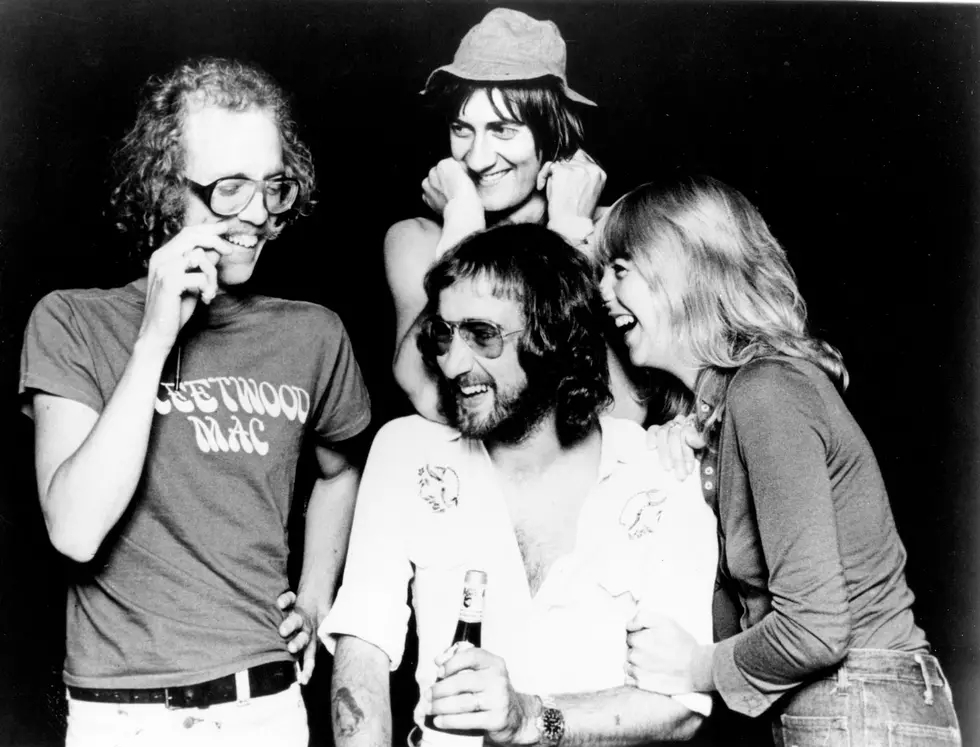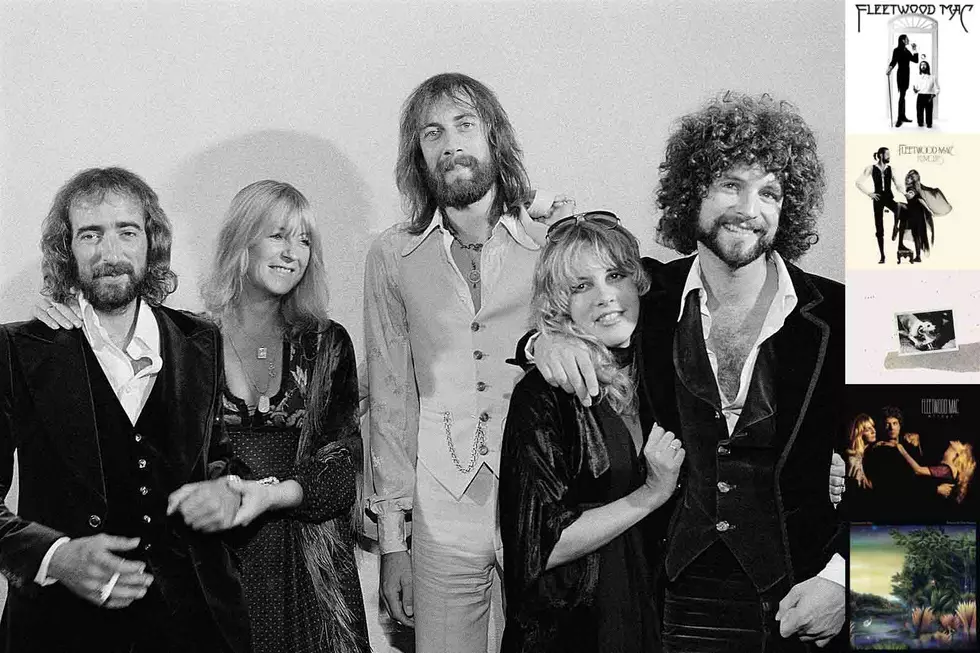
When Fleetwood Mac Ended an Era With ‘Heroes Are Hard to Find’
Heroes Are Hard to Find, is, in many ways, one of Fleetwood Mac's most forgotten – just like soon-to-depart guitarist Bob Welch.
He'd had been in the lineup since 1971, releasing four LPs up to this point, all of which kept Fleetwood Mac on an upward trajectory. Albums like Bare Trees and Mystery to Me started to garner some radio play in the United States, and their reputation as a live act had been well-established. Despite that, things had yet to really click for the veteran rockers.
Released on Sept. 13, 1974, Heroes Are Hard to Find begins on a strong note, with a first-class Christine McVie composition in the title cut. Brimming with her unique brand of jubilation, the song is a perfect album opener and one of McVie's lost classics. It should have been a hit, but failed to make any dent.
Welch is up to bat next with the slightly psychedelic "Coming Home." Displaying solid signature playing that made earlier tracks like "Hypnotized" so strong, Welch is front and center here. It's an odd song, with no real discernible hook, but the mood created is dynamic and striking. The entire album is split between the songwriting of McVie and Welch, and while their style and approach is quite different, the two paths link up very effectively throughout.
On the third track, "Angel," Welch is still in command here with a moody, straight-ahead rocker that once again displays his underrated guitar technique. "Bermuda Triangle" is a haunting tune, almost worthy of its namesake. Welch's vocal delivery lacks personality at times, and the song never really takes off into the depths it should, but the always reliable rhythm section of John McVie and Mick Fleetwood save the song from itself.
Listen to Fleetwood Mac's 'Heroes Are Hard to Find'
"Bermuda Triangle" points to one of the problems with this incarnation of Fleetwood Mac. They had a tendency to veer too close to the middle of the road. With Welch in control, things got very smoothed out in a way they didn't amid the raw blues chaos of the Peter Green era, the rootsy approach of the Danny Kirwan/Jeremy Spencer-driven lineup or, obviously, the Lindsey Buckingham/Stevie Nicks years. Not that it was his doing entirely, but Welch didn't have the fire needed to push the band where it needed to go.
"Come a Little Bit Closer" is pop perfection from Christine McVie. The song has an almost George Harrison-like quality to it, with some nice pedal steel from the legendary Sneaky Pete Kleinow, formerly of the Flying Burrito Brothers. On "She's Changing Me," Welch again veers too close to that sterile MOR sound so prevalent in 1974. Not unlike the tune it follows, it has elements of a lost Beach Boys tune, but ultimately goes nowhere.
Things really pick up with "Bad Loser," a moody rocker that shows off some genuinely fine guitar work from Welch and adds in heaping handfuls of personality, something lacking from much of the album. The rhythm section once again saves the day here. Welch steps back up with "Silver Heels," a somewhat country-ish tune that sinks before it gets the chance to swim. It's generic mid-'70s rock to the definition, and his slightly funky approach fails miserably. His forte was subtle, yet haunting guitar playing, much less so his singing or attempts to rock out.
"Prove Your Love" is pretty much standard Christine McVie fare, meaning it's got a hook and a melody and ultimately succeeds, even if the results are not up to her usual standards. "Born Enchanter" finds Welch trying to get all funky again. The LP ends, however, on a very strong note, as Welch gets back into his own groove with the somewhat spacey, and appropriately titled "Safe Harbour." A beautiful tune, primarily instrumental, that showcases not only his sweet guitar playing, but his knack for creating a mood.
Though the LP reached the U.S. Top 40, Heroes Are Hard to Find would be Bob Welch's last with Fleetwood Mac. Shortly after its release, he left the band. In the years that followed, Welch became a tragic figure who sadly took his own life in 2012. He never really got his due as a player or writer, particularly in the Fleetwood Mac story: For unknown reasons, he was not inducted into the Rock & Roll Hall of Fame with the rest of the band.
Fleetwood Mac Ex-Members: Where Are They Now?
Why Don't More People Like This Fleetwood Mac Album?
More From Ultimate Classic Rock









